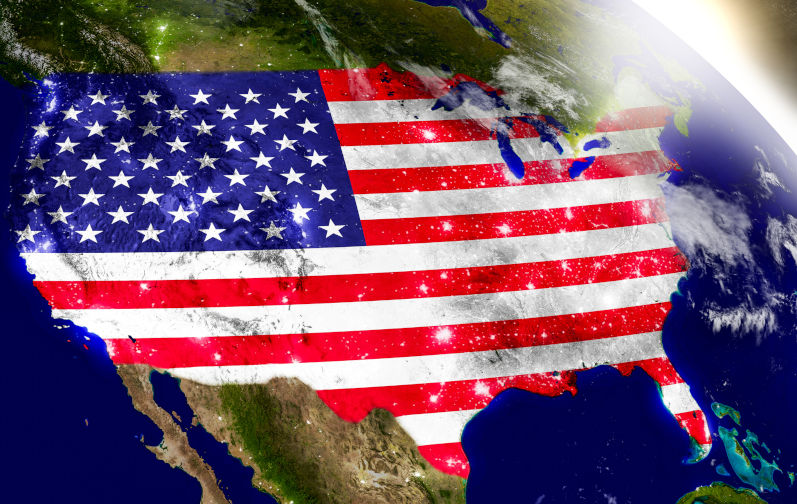Imperial decline and the causes of polarisationin America
May 24, 2023
American society is going through a phase of polarisation unlike anything seen before, and so far, unparalleled in any other Western democracy. It has given rise to intense feuds among politicians, and makes governing difficult for the White House, most recently aggravated by yet another debt crisis. But why is this happening?
The rift is not just a political one between Democrats and Republicans and their supporters. It pervades every aspect of social and cultural life and incites people to take sides against each other on just about every issue, from crime to immigration, from health policies to police reform. Its almost like a civil war brewing, each side accusing the other of being a serious threat to democracy, with little common ground left.
So far political and social analysts are at a loss to understand why it is happening, how it could come to this in a nation proud of its democratic tradition and strong moral convictions. Drawing on psychological experiments regarding extreme behaviour between opposing groups does not help explain the deeper causes for this development.
To the observer from the outside, living in Australia and Europe, one historical reason comes to mind which could be at least partly responsible for the crisis: the end of the Cold War. The collapse of the Communist Soviet Union in the nineties led to geopolitical upheavals which had a lasting impact on the US and the rest of the world.
We need to keep in mind that a nations identity is not only formed through internal historical processes, but also depends on the relationship with the countrys neighbours and the wider international community. In 19th century Europe for example, your identity as a German or French was partly determined by the fact that you were not English or Italian. The external dynamic is relevant on many levels - political, economic and cultural - and will of course be felt most drastically in the case of economic competition and military conflict.
After World War II, Americas dominant and defining relationship was not with her immediate neighbours Mexico or Canada, but with the most powerful political competitor and ideological opponent, the communist Soviet Union. During the Cold War, the conviction that capitalist democracy was superior to Soviet communism helped the American people maintain a confident and proud national identity, and persuaded them to more or less unite behind their governments, whether Republican or Democrat. And that in turn made it easier for political leaders to deal with internal social problems.
When the Soviet Union finally collapsed in the nineties and the Communist superpower was brought to its knees, America could claim to have won the Cold War. But it was a spurious victory, because with it the nation also lost a key element of its political identity: a powerful opponent against whom it could define itself as being superior.
Americas self-confidence suffered further when countless Third World countries gained independence from their former masters - with the concomitant rise of international terrorism in the early 21st century - and when the countrys previously unrivalled economic power was increasingly challenged by China.
As a result of these external geopolitical developments, internal conflicts became more difficult to control. No longer protected by the illusory belief in the promised land, the American people began to resort to social identifiers such as race, class, gender and religion etc. to define themselves as citizens. These social identities dont easily unite individuals and groups behind their leaders, but rather set them apart from each other - as black or white, rich or poor, straight or queer, Christian or Muslim, resident or immigrant. While that obviously stirred the disadvantaged among them to fight more vehemently for their legitimate causes, it increasingly produced violent reactions against them.
In identity politics, everyone assumes they are on the right side, and everyone wants to be heard. This can be the sign of a healthy democracy - especially when it comes to civil and human rights activism like the Black Lives Matter or Me too movements which have flourished in recent years - but society cannot function properly without some unifying strategies.
It is one reason why the US government became so autocratic during the previous presidency, often disregarding and violating the will of the majority and even usurping the constitutionally guaranteed right to self-determination for devious and destructive purposes - as happened at the very heart of the government in Washington, which threatened to undermine the foundations of society from inside.
The hallmark of American liberal democracy, as enshrined in the Constitution, has always been freedom of expression and the right to choose what you do with your own life. But the ideal of the American dream - which is in fact in stark contrast to the reality of many peoples lives - will only be a unifying force as long as the nation can claim to be a successful superpower looking after everyones interests.
To thrive and survive, big democracies depend on exerting power and influence abroad. As Americas economic and political power is now seriously challenged, her very democracy is under threat - unless the country becomes more self-reflective and accepts its limitations, which would be the biggest challenge yet.

